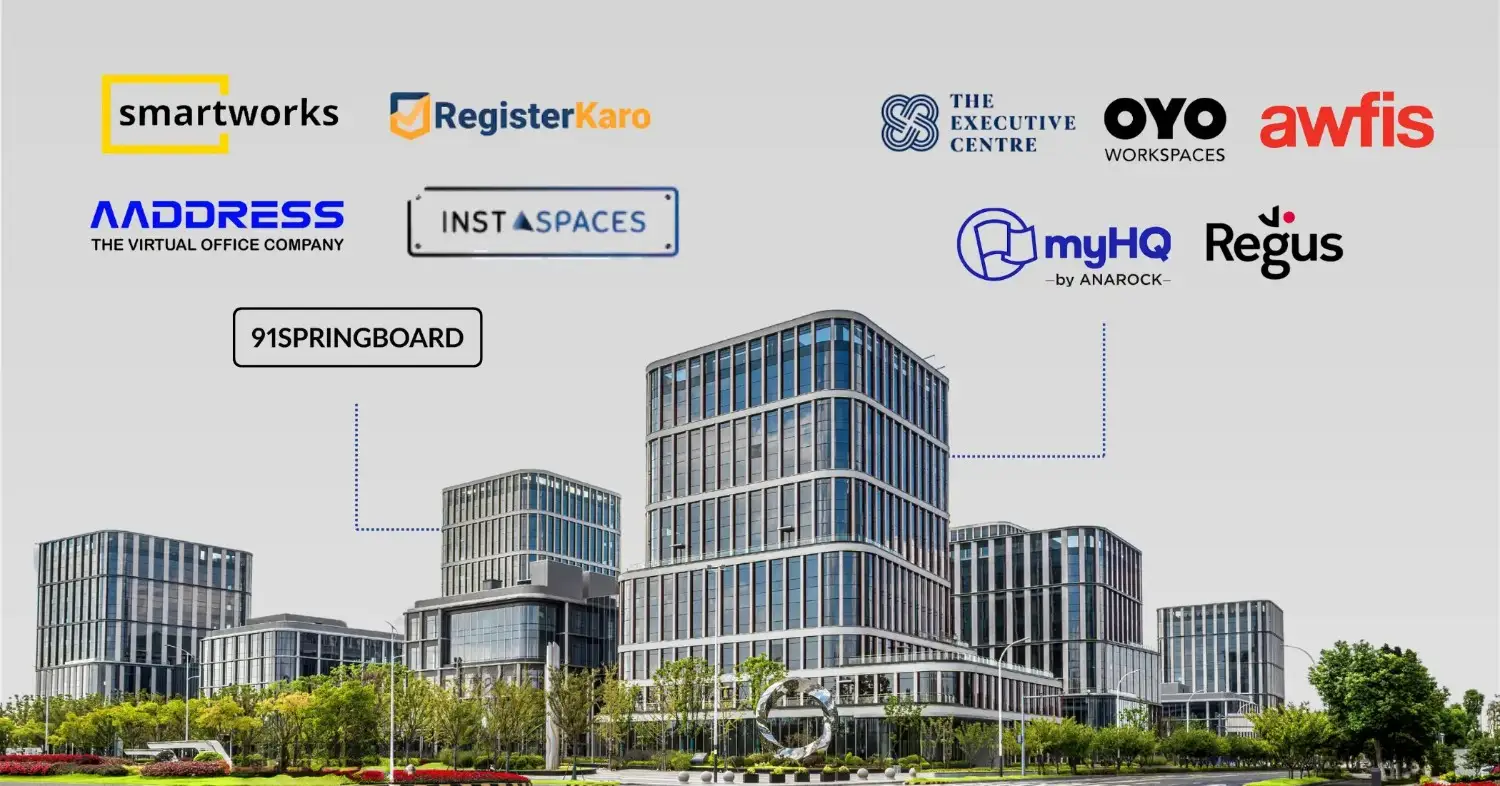A virtual office in India provides a professional business address without renting a physical space. Services often include:
- Mail and courier handling
- Call forwarding
- Access to meeting rooms
- Compliance-ready documentation
This model reduces office expenses, supports flexible work arrangements, and enhances market credibility. Startups, freelancers, and growing firms benefit from a real address while avoiding heavy rent and maintenance costs.
In Chennai, the virtual office model is gaining traction as the city embraces digital reforms and flexible workspace solutions. These changes explain why virtual offices are becoming the go-to option for modern businesses in Chennai:
- The Tamil Nadu government has digitised property and company registration services, making compliance faster and more transparent. This move directly benefits firms that use virtual offices for GST and ROC documentation.
- Flexible workspace operators leased around 0.7 million sq. ft. in Chennai during Q2 2024, showing rising demand for cost-efficient office solutions.
- Chennai’s office stock is set to cross 100 million sq. ft. by 2026, supported by growing digital adoption among startups and MSMEs. Virtual offices fit seamlessly into this shift, offering credibility, lower costs, and tech-ready support for future growth.
How a Virtual Office Works for Business?
A virtual office not only reduces costs but also ensures compliance. It fosters trust, enhances communication, and removes rental burdens. A virtual office offers the following essential services and support:
- Provides a prime business address for GST registration, ROC filings, and client confidence.
- Manages courier and mail, scans documents, and forwards them on time.
- Delivers reception services that answer calls and handle client queries.
- Offers meeting rooms and coworking desks only when required, keeping expenses low.
Note: GST officers may conduct inspections. Authorities accept only registered virtual offices with valid documents such as NOC, rent agreement, and utility bills.
Virtual Office vs. Traditional Office
Chennai is one of India’s leading hubs for IT companies, startups, exporters, and freelancers. The choice of office space directly impacts costs, flexibility, and market credibility. Here’s how virtual and traditional offices compare:
| Factor | Virtual Office | Traditional Office |
| Cost | Low monthly plans; pay only for needed services | High rent in prime locations |
| Location/ Address | Prime business addresses like Anna Salai, Nungambakkam, and T. Nagar | Requires leasing full office space in commercial hubs |
| Flexibility | Work from anywhere, use meeting rooms when needed | Fixed location, limited flexibility |
| Compliance Support | Provides GST-ready documents, NOC, rent agreement, and mail handling | You handle GST, ROC filings, and mail yourself |
| Professional Image | Gives a credible business presence without a full-time office | A full office gives a tangible presence, but costly |
| Scalability | Easy to scale up or down as the business grows | Expanding requires renegotiating the lease or moving |
| Setup Time | Immediate setup, usually within 24–48 hours | Takes weeks to find, lease, and furnish an office |
| Operational Overheads | Minimal, only pay for services used | High utility bills, maintenance, and staffing costs |
| Ideal For | Startups, freelancers, e-commerce, and home-based businesses | Established companies needing full infrastructure |
Note: Virtual offices are legally valid for GST and ROC registration if they provide the required compliance documents. Always ensure your provider is authorised and GST-accepted.











